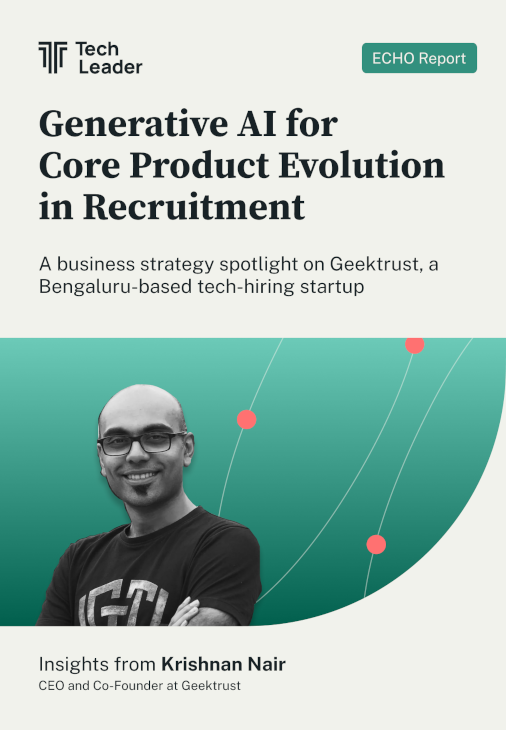In the rapidly evolving landscape of generative AI implementation, a trend is emerging across industries: companies led by domain experts with limited AI backgrounds are often outperforming those staffed with specialized AI talent. This pattern, highlighted by Geektrust's successful transformation of technical interviewing, challenges conventional wisdom about the skills needed to build effective AI solutions. Krishnan Nair, CEO of Geektrust, explains:
"When you're building with generative AI, what is very important is you understand the nuances of your domain really, really well. Domain experience and nuance of the domain are super key."
The shifting value proposition
The democratization of AI tools through platforms like Azure OpenAI and similar services has fundamentally altered the expertise equation. Where specialized technical knowledge was once the primary barrier to AI implementation, these platforms now handle much of the underlying complexity, shifting the value proposition toward domain-specific knowledge. Nair observes:
"My data scientist is Azure OpenAI. I just need to know how to use it. I know the business completely and exactly how to use it, and I'm able to solve that problem."
This perspective is gaining traction as more organizations discover that AI specialists without deep industry knowledge often struggle to identify the most valuable applications or understand the nuanced constraints of real-world implementation.
Problem identification vs. technical implementation
A critical factor in this shift is the growing recognition that accurately identifying and framing business problems requires greater domain expertise than implementing AI solutions. Research from Stanford's Institute for Human-Centered AI found that many unsuccessful AI projects fail not due to technical limitations but because of misalignment with actual business needs.
"You have to explain things to OpenAI like you would to your 90-year-old grandmother," Nair explains about prompt engineering. "And when you want it to do things for you, you have to give instructions like you would to a five-year-old."
The integration challenge
Another dimension where domain experts excel is in integrating AI capabilities into existing workflows and systems. Geektrust's approach of enhancing existing applicant tracking systems rather than replacing them entirely demonstrates how domain knowledge facilitates practical implementation.
"Build on, not over," summarizes their integration philosophy. This approach prioritizes enhancing existing systems rather than replacing them, allowing for incremental improvement and easier adoption.
This integration expertise proves particularly valuable as organizations discover that successful AI implementation often requires significant changes to workflows and processes – changes that are difficult to design without intimate knowledge of existing operations.
The emergence of hybrid teams
Despite this shift, technical expertise remains important. The most successful implementations now come from hybrid teams where domain experts collaborate with technical specialists. In these arrangements, domain experts typically lead problem definition and solution design, while technical specialists handle infrastructure and optimization.
"We have two or three people who work a lot with OpenAI itself, the prompt-setting piece," Nair notes about Geektrust's team composition, highlighting how specialized technical roles remain valuable but in more focused capacities.
This hybrid model represents a significant shift from earlier AI implementation approaches, where technical specialists often drove both solution design and implementation, with limited domain input.
The path forward
As generative AI moves from proof-of-concept to operational implementation, organizations are reconsidering their talent strategies. Rather than focusing primarily on hiring AI specialists, many are now prioritizing domain expertise supplemented with targeted AI capabilities. This trend will likely accelerate as generative AI platforms continue to abstract away technical complexity.
For organizations considering generative AI implementation, this shift suggests that starting with domain expertise and adding targeted technical capabilities may prove more effective than beginning with technical expertise and attempting to add domain knowledge later.
%20(1).png)



.svg)




.png)



.JPG)
.svg)